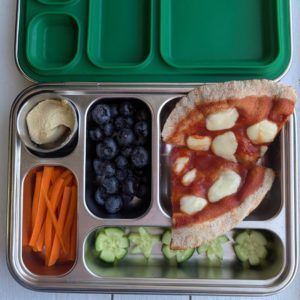Here are a few tips on how to best utilize your parenting skills at meal times!
Parent role modeling is key to creating healthy eating habits for the rest of your child’s life.
Positive and Patient
- Positive: Make meals a positive experience. Don’t let dinner be the time when family members vent frustration. Even on difficult days, role model the right mealtime behavior.
- Patient: Kids learn by observing. Sometimes, they look for a reaction. If they get one, they will likely repeat the action, to re-test and observe again. Be patient when your toddler throws foods on the floor or when your preschooler asks a dozen questions like “Why is the food ready now?, Why is it cooked?, Why is it orange?, Why is the slice round?, Why is this slice bigger than that one?…” Mealtimes are socializing events when, among many things, you role model how to deal with stress, hunger, multi-tasking, communicating, and…yes, finally, eating!
Attuned and Attentive
- Attuned: Keep an observing mind. When your child says “I don’t like this food”, don’t take it personally. Rather, try to observe if she is usually not hungry at dinner time (maybe a different meal-time works better?) or if there is a factor about the specific food (such as that food’s texture, temperature, or presentation) that influences her acceptability of that particular food. Learn more about Top Ten Mindful Eating Tips to Teach Kids.
- Attentive: Your child needs no less attention during meal times than any other family member. He doesn’t want to be ignored, while adults carry on their adult conversation. Make comments about the food to help toddler stay focused on the task of eating.
Repeat and Respond
- Repeat: How many times do you need to introduce a new food before it is accepted? Experts quote ranges anywhere from 5-8 (the most optimistic) to 30-50 times. The take-home message: Keep trying! Offer the same food in various methods of preparation, various ways of cutting it, various combinations with other foods. Remember: You can always use a well-liked food as a “facilitator” to introduce a new food in mixed dishes.
- Respond: Respond to your child’s hunger and satiety. Don’t force children to finish meals, don’t stuff them, and avoid using sentences that start with “If you finish your food, then…”
Example and Exposure
- Example: Action speaks louder than words. When mom and dad tell their kids to drink water and eat veggies, but mom and dad drink soda and stock the pantry and freezer with lots of unhealthful foods what do their kids end up doing? Family meals have great influencing power. Everybody eating the same healthy foods is the right food-parenting style! See the article, Do As I Do, for more information about good role-modeling.
- Exposure: Every day that you’re a parent, you lead by example and exposure. The first place where kids look for models is in their immediate world: Their parents. Children can only copy what they are exposed to. For more information, check out: Top 5 Nutrition Tips to Practice What We Preach.
Nurture with Nature
- Nature: No matter how technologically advanced our world becomes, our bodies are still very close to nature: We need to eat foods from nature, such as fruits and vegetables, as these foods are the fuel that most closely matches what our body needs for nourishment.
- Nurture: Respecting your child’s nature and temperament at meal-times, the same as you would in other circumstances, helps create a continuum of your parent-child relationship. Just as you wouldn’t be forceful in other situations, you shouldn’t force foods upon a child. You can offer your child healthy foods and then role-model eating healthfully.
Trust and Triumph
- Trust: Follow your body’s cues for hunger and satiety, and teach your child to do the same. Read more on teaching your child mindful eating. Your body naturally knows how much food it needs. Respond to the feedback you get from your internal clock. Let your child do the same.
- Triumph: With each child that learns healthy eating habits, we should celebrate each small triumph. You contribute to bringing the day when the obesity epidemic will only be talked about in history books that much closer!












